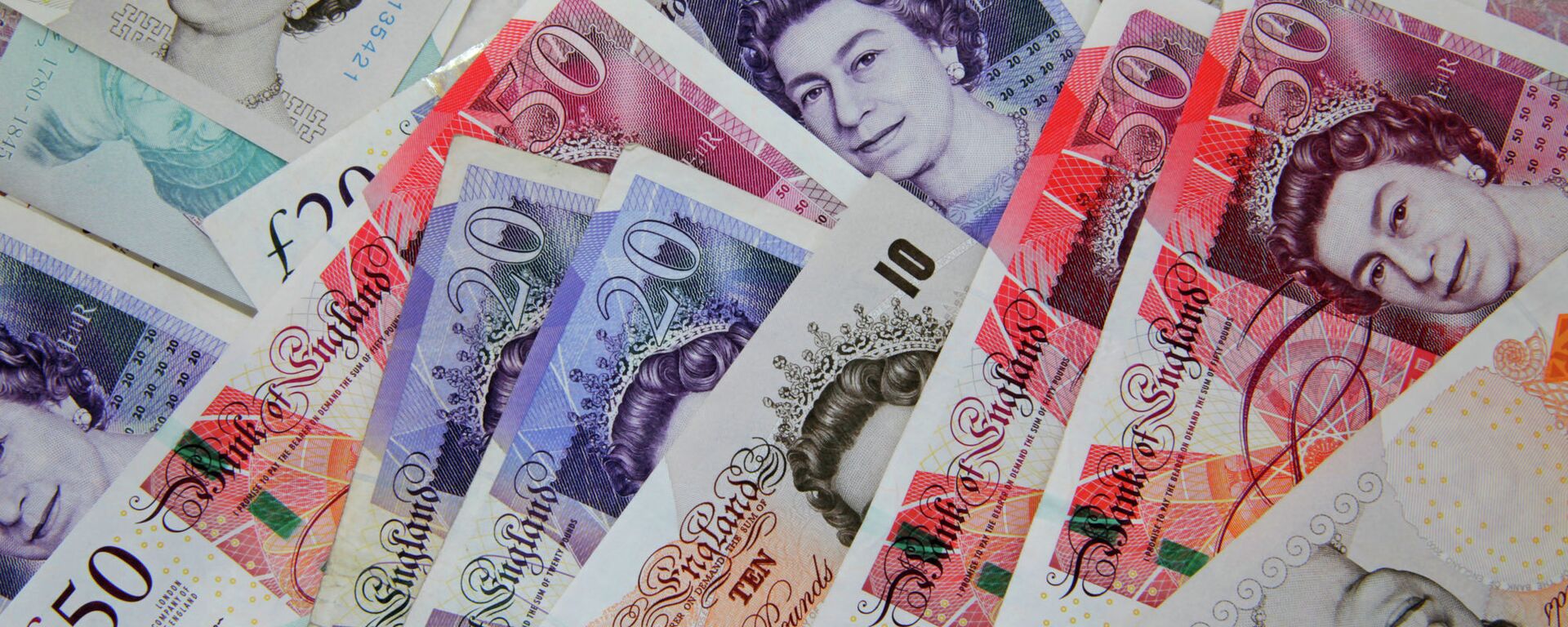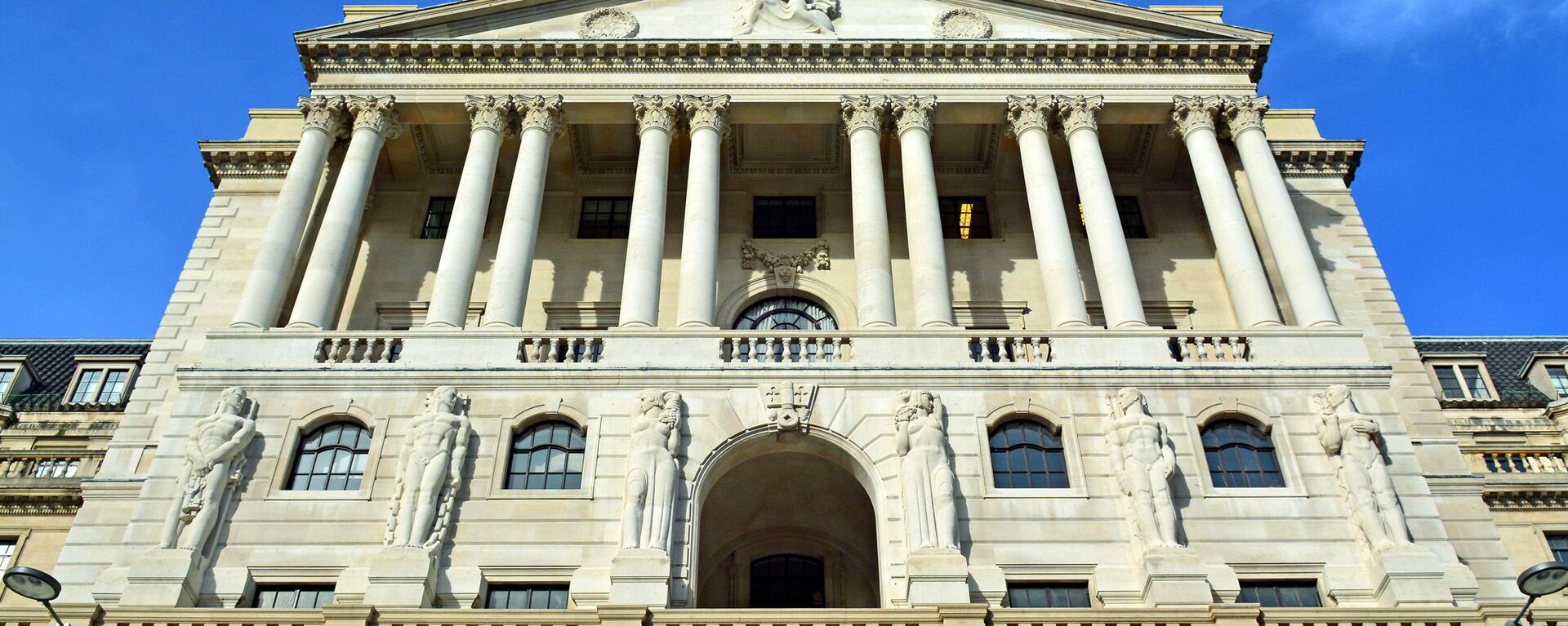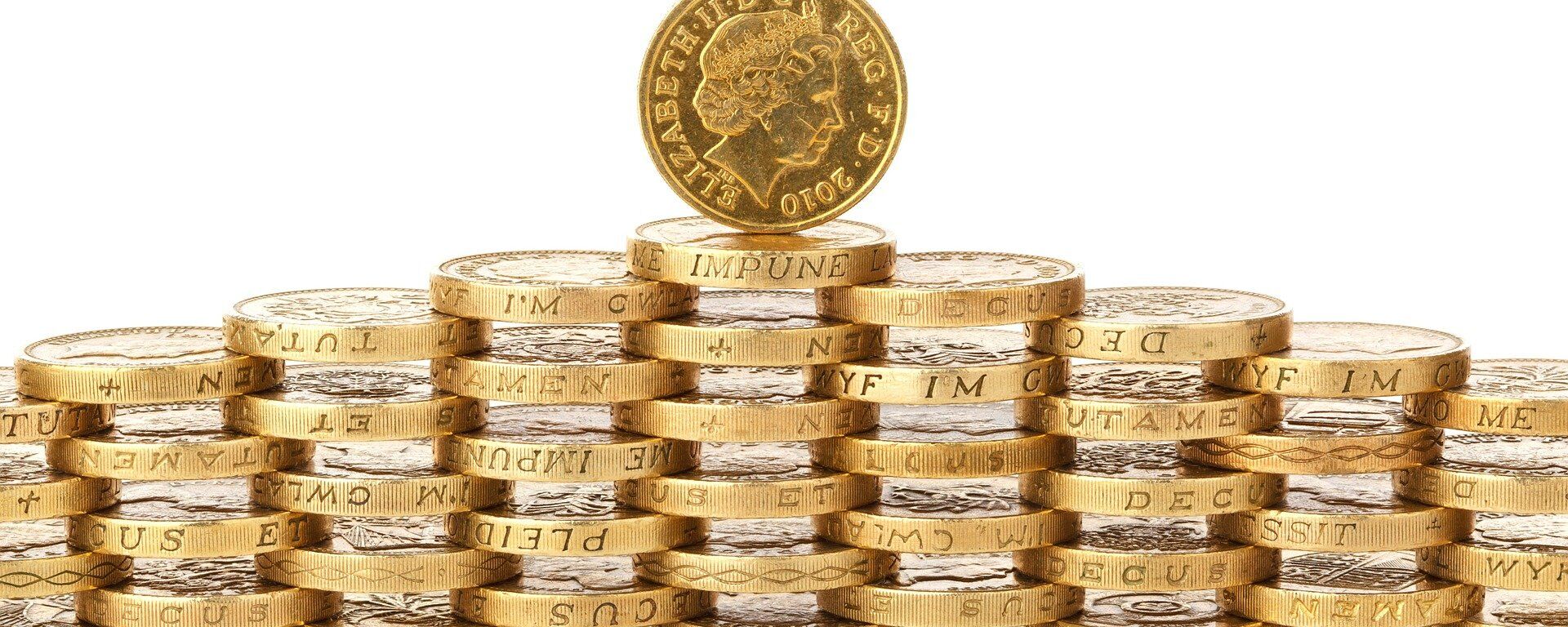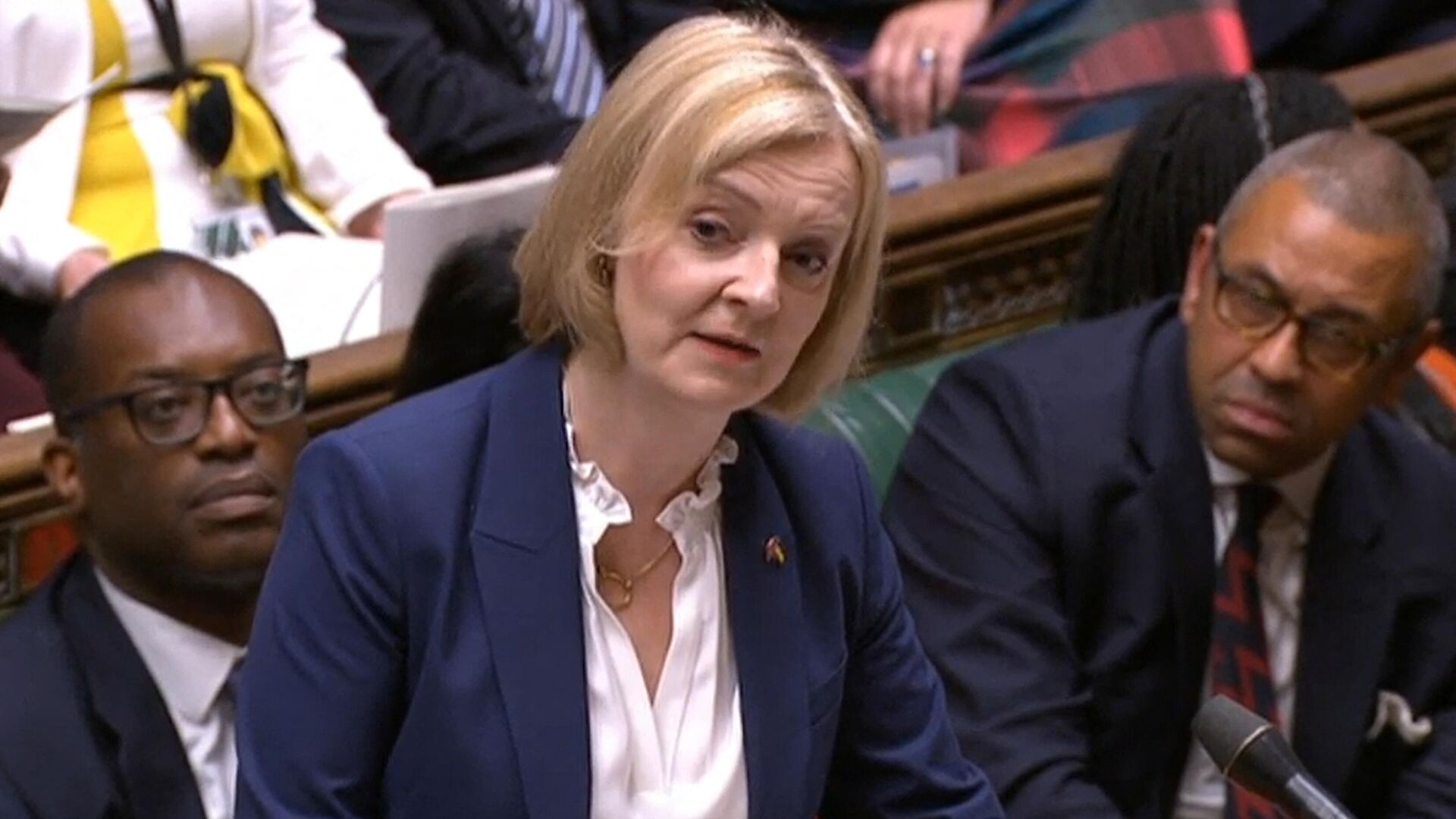https://sputnikglobe.com/20220924/why-uk-pm-truss-economic-rescue-plan-wont-fly-could-put-paid-to-tories-election-hopes-1101174418.html
Why UK PM Truss' Economic Rescue Plan Won't Fly, Could Put Paid to Tories' Election Hopes
Why UK PM Truss' Economic Rescue Plan Won't Fly, Could Put Paid to Tories' Election Hopes
Sputnik International
On September 23, UK Chancellor Kwasi Kwarteng unveiled his new mini-budget, pledging to turn the "vicious cycle of stagnation into a virtuous cycle of growth."... 24.09.2022, Sputnik International
2022-09-24T13:06+0000
2022-09-24T13:06+0000
2023-05-28T15:21+0000
analysis
pound
inflation
recession
tax cuts
kwasi kwarteng
liz truss
budget
united kingdom (uk)
https://cdn1.img.sputnikglobe.com/img/07e6/09/07/1100504706_0:0:3309:1862_1920x0_80_0_0_b954e565b5c70926844541c3ab496712.jpg
Britain's new Chancellor of the Exchequer Kwasi Kwarteng, vowed on Friday to raise the trend growth of gross domestic product (GDP) to 2.5%. To that end, he proposed more than £411 billion ($446 billion) in extra borrowing over five years, according to Resolution Foundation estimates. The borrowing will ramp up the already soaring national debt, according to British academic and author Rodney Atkinson."The national debt will be around 100% of GDP - a high level, but it was much higher after the two world wars," projects Atkinson.The Liz Truss Cabinet's new initiative envisages spending £60 billion ($65 billion) in the six months following October 2022 to reduce energy bills for households and businesses. The basic rate of income tax is going to be slashed to 19% from 20%. A planned corporation tax rise to 25% will be reversed, with businesses continuing to pay a rate of 19%. The 45% rate of income tax paid by those earning over £150,000 per year will be reduced to 40%. The cap on bankers’ bonuses will be abolished; alcohol duties will be frozen. Kwarteng also announced a series of supply-side measures, and a reform of planning rules with the creation of low-tax investment zones on top of this."Now, under Mr Kwarteng, debts will pile up. Tax cuts would increase Britain’s public-debt-to-GDP ratio from a little over 80% in 2021-22 to nearly 95% in 2026-7," warned The Economist, citing the IFS and Citibank.Apparent Flaws in Kwarteng's Grand DesignAccording to Atkinson, Kwarteng's plan has a series of flaws. The chancellor's decision to scrap the 45% top rate of income tax, replacing it with a 40% rate is "insignificant compared to what he should have done - raise the tax thresholds which have been held artificially low for years, dragging average earners into higher tax," Atkinson suggests.Likewise, the reversal of the planned corporation tax rise to 25% is not per se a panacea, according to Atkinson.Even though the new chancellor asserted to British MPs that his energy rescue scheme would reduce inflation by five percentage points, in reality it is likely to initially reduce headline inflation by about four percent with higher interest rates then pushing costs upwards again, according to the academic."Not all the energy cost rise will be paid by the government," he says, adding that the Ukraine conflict and the boomerang Russia sanctions will continue to take a toll on energy prices.In contrast, "the planning laws shake-up is very important – as is the lifting of the ban on fracking – releasing hundreds of billions of pounds' worth of gas," admits Atkinson.However, when it comes to Kwarteng's "investment zones," they are "a waste of time at best and a massive distortion at worst," according to the British economist."If taxes/regulations are too high then privileges for certain areas are a distortion of business activity," argues the British academic. "There is a big cost of moving to those zones. There is an arbitrary profit for those already in them. The subsidies will be a tax on those businesses outside those areas (taking their custom and taxing them to pay for the zone subsidies) and property business for instance cannot move!"Financial Markets Go Down, Sterling is in Free FallKwarteng's announcement "floored" financial markets on Friday, according to Reuters: "investors dumped short-dated British government bonds as fast as they could," while the pound sterling plummeted more than three percent against the greenback to less than $1.10 – a level last seen 37 years ago, the media outlet highlighted.The British currency is sliding despite the Bank of England (BoE) continuing to raise interest rates in a bid to tame skyrocketing inflation.The magazine pointed out that the pound sterling has fallen against the dollar to around 20% since the start of 2022 and 10% since the start of August. "A falling currency makes imports more expensive, worsening the Bank of England’s inflation problem," The Economist underscored.At the same time, growing interest rates are making borrowing more and more expensive, which is likely to "offset the economic sugar rush of a bigger deficit" pursued by the Truss Cabinet, the media outlet presumed.All in all, the new British government's economic policies are likely to backfire on the Conservatives' election odds, according to The Economist. Kwarteng's initiative casts a shadow on the Tories' "reputation for sound finances" and triggers doubts that the plan will work.
https://sputnikglobe.com/20220924/denial-mode-uk-chancellor-dismisses-claims-of-gambling-with-economy-amid-pound-collapse-1101164952.html
https://sputnikglobe.com/20220923/uk-may-be-in-recession-says-boe-as-it-warns-support-package-risks-adding-to-inflationary-pressure-1101113153.html
https://sputnikglobe.com/20220908/british-pound-sterling-nosedives-to-1985-low-against-dollar-amid-fears-of-uk-recession-1100529322.html
united kingdom (uk)
Sputnik International
feedback@sputniknews.com
+74956456601
MIA „Rossiya Segodnya“
2022
News
en_EN
Sputnik International
feedback@sputniknews.com
+74956456601
MIA „Rossiya Segodnya“
Sputnik International
feedback@sputniknews.com
+74956456601
MIA „Rossiya Segodnya“
pound, inflation, recession, tax cuts, kwasi kwarteng, liz truss, budget, united kingdom (uk)
pound, inflation, recession, tax cuts, kwasi kwarteng, liz truss, budget, united kingdom (uk)
Why UK PM Truss' Economic Rescue Plan Won't Fly, Could Put Paid to Tories' Election Hopes
13:06 GMT 24.09.2022 (Updated: 15:21 GMT 28.05.2023) On September 23, UK Chancellor Kwasi Kwarteng unveiled his new mini-budget, pledging to turn the "vicious cycle of stagnation into a virtuous cycle of growth." Nonetheless, the markets reacted negatively to Kwarteng's promises, with the sterling and British government bonds going sharply down.
Britain's new Chancellor of the Exchequer Kwasi Kwarteng, vowed on Friday to raise the trend growth of gross domestic product (GDP) to 2.5%. To that end, he proposed more than £411 billion ($446 billion) in extra borrowing over five years,
according to Resolution Foundation estimates. The borrowing will ramp up the already soaring national debt, according to British academic and author Rodney Atkinson.
"The national debt will be around 100% of GDP - a high level, but it was much higher after the two world wars," projects Atkinson.
The Liz Truss Cabinet's new initiative envisages spending £60 billion ($65 billion) in the six months following October 2022 to reduce energy bills for households and businesses. The basic rate of income tax is going to be slashed to 19% from 20%. A planned corporation tax rise to 25% will be reversed, with businesses continuing to pay a rate of 19%. The 45% rate of income tax paid by those earning over £150,000 per year will be reduced to 40%. The cap on bankers’ bonuses will be abolished; alcohol duties will be frozen. Kwarteng also announced a series of supply-side measures, and a reform of planning rules with the creation of low-tax investment zones on top of this.
"Now,
under Mr Kwarteng, debts will pile up. Tax cuts would increase Britain’s public-debt-to-GDP ratio from a little over 80% in 2021-22 to nearly 95% in 2026-7,"
warned The Economist, citing the IFS and Citibank.

24 September 2022, 10:45 GMT
Apparent Flaws in Kwarteng's Grand Design
According to Atkinson, Kwarteng's plan has a series of flaws. The chancellor's decision to scrap the 45% top rate of income tax, replacing it with a 40% rate is "insignificant compared to what he should have done - raise the tax thresholds which have been held artificially low for years, dragging average earners into higher tax," Atkinson suggests.
Likewise, the reversal of the planned corporation tax rise to 25% is not per se a panacea, according to Atkinson.
"Cancelling the rise in corporations' tax is not as important as reducing, for instance, business rates - and especially business rates on empty properties," argues Atkinson. "The 19% rate for the biggest quoted corporations is the same rate as the income tax rate for the average income tax payer. The reduction will benefit most those corporations which have the easiest access to capital (on the stock market) and it will merely raise the dividends taken out of the country by overseas owners."
Even though the new chancellor asserted to British MPs that his energy rescue scheme would reduce inflation by five percentage points, in reality it is likely to initially reduce headline inflation by about four percent with higher interest rates then pushing costs upwards again, according to the academic.
"Not all the energy cost rise will be paid by the government," he says, adding that the Ukraine conflict and the boomerang Russia sanctions will continue to take a toll on energy prices.
In contrast, "the planning laws shake-up is very important – as is the lifting of the ban on fracking – releasing hundreds of billions of pounds' worth of gas," admits Atkinson.
However, when it comes to Kwarteng's "investment zones," they are "a waste of time at best and a massive distortion at worst," according to the British economist.
"If taxes/regulations are too high then privileges for certain areas are a distortion of business activity," argues the British academic. "There is a big cost of moving to those zones. There is an arbitrary profit for those already in them. The subsidies will be a tax on those businesses outside those areas (taking their custom and taxing them to pay for the zone subsidies) and property business for instance cannot move!"

23 September 2022, 05:51 GMT
Financial Markets Go Down, Sterling is in Free Fall
Kwarteng's announcement "floored" financial markets on Friday,
according to Reuters: "investors dumped short-dated British government bonds as fast as they could," while the pound sterling plummeted more than three percent against the greenback to less than $1.10 – a level last seen 37 years ago, the media outlet highlighted.
The British currency is sliding despite the Bank of England (BoE)
continuing to raise interest rates in a bid to tame skyrocketing inflation.
"Normally the pound would benefit from higher interest rates luring in global capital," explained The Economist. "Yet because investors view sterling as a riskier asset than the dollar, euro or Japanese yen, there has been no such benefit."
The magazine pointed out that the pound sterling has fallen against the dollar to around 20% since the start of 2022 and 10% since the start of August. "A falling currency makes imports more expensive, worsening the Bank of England’s inflation problem," The Economist underscored.

8 September 2022, 07:06 GMT
At the same time, growing interest rates are making borrowing more and more expensive, which is likely to "offset the economic sugar rush of a bigger deficit" pursued by the Truss Cabinet, the media outlet presumed.
All in all, the new British government's economic policies are likely to backfire on the Conservatives' election odds, according to The Economist. Kwarteng's initiative casts a shadow on the Tories' "reputation for sound finances" and triggers doubts that the plan will work.
"Tax cuts for the rich and for business are unlikely to go down well with new Tory voters drawn to Mr Johnson’s vision of big-state conservatism, particularly at a time of rising bills. And high interest rates will whack homeowners, the bedrock of the Conservative vote (…) Mr Kwarteng’s desire to boost growth is laudable, but his plan is not going to work economically. It is likely to backfire politically, too," the magazine concluded.





